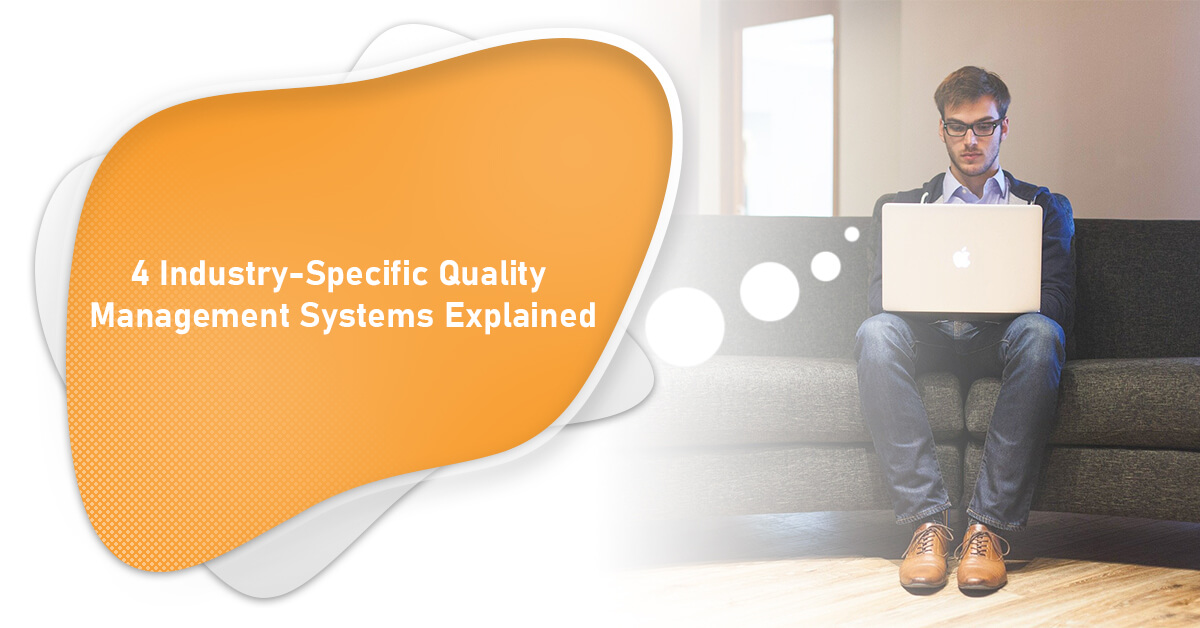
Want your business to establish a strong quality management framework in your business? Well, before that you need to know the different types of quality management systems. Every industry is unique! Naturally, the quality performance metrics and objectives vary from one industry to industry. If you are offering a product, then quality expectations of the customers depend on its tangibility, features, usability, durability, etc. On the other hand, if your organisation is providing some services, the quality aspects involve efficiency, time appropriateness, reliability or performance, and responsiveness. Likewise, factors influencing the quality of healthcare services differ much from that of banking/financial services or the quality of food items differs greatly from that of electronic items.
In a general sense, measurement and assurance of quality depend on the type of products/services, context of the business, and customer expectations. Whatever your business type or nature of products or services, quality must be your primary goal! For that, you need a feasible and comprehensive QMS (quality management system) to realise your specific quality objectives, and track progresses and customer satisfaction level.
But before you start planning for the implementation of a QMS, we want you to get an idea of the different Quality Management Systems that are widely applicable to different industries.
Overview of Industry-Wise Quality Management Systems
ISO 9001
ISO 9001 is the generic and most widely accepted QMS that applies to mainstream businesses. This means it is achievable by any industry regardless of the products or services it deals. Nearly one million of organisations all over the world have achieved it with the aim to promote operational efficiency, minimize risks, and continually improve their quality performance. ISO 9001 is the umbrella standard for all other Quality Management Systems. It gives out a common and vast set of requirements that businesses should meet to ensure consistent delivery of quality products and services.
This nonspecific QMS helps businesses address many aspects altogether. They include maintaining documented information, organising of processes, responsibilities of management, optimal resources use, product realisation, and internal performance reviews. That is why organisations need an ISO 9001 QMS to track all their critical functions that have an influence on the quality of end products or services.
ISO 13485
This is the QMS specified for the medical devices industry. It helps in ensuring the quality, safety, accuracy, and reliability of the medical devices that are used for healthcare services. Safety is not a negotiable aspect for medical devices. The assessment of health, recovery, and wellness of people depends on the devices. Doctors or healthcare centres’ reliability is also guaranteed by superior-quality and safer devices. It is hence the responsibility of manufacturers to have the most effective QMS such as ISO 13485. It ensures that best practices are being followed in designing, development, installing, and even servicing all the medical devices.
Importantly, this QMS is based on the general requirements of ISO 9001. It is combined with certain additional requirements that are specific to medical devices production.
ISO 20000
ISO 20000 is the QMS for the Information Technology (IT) services industry. The world has today shifted to a digital landscape, where almost every sector is reliant on technologies and IT services. Owing to such a rapid shift in the business paradigm, this QMS has become necessary for organisations that offer IT services to other companies and individuals.
ISO 20000 specifies the ideal code of practices and management processes required for IT-based organisations to deliver their services efficiently and timely, ensuring maximum satisfaction of customers. It helps organisations in demonstrating their ongoing commitment to high-grade services and maintenance of consistency by reducing risks or inefficiencies.
AS9100
This standard too is based on general ISO 9001 but is modelled with many supplementary requirements to address the specific quality management aspects of the aerospace manufacturing industry. AS9100 is the QMS for organisations that design, manufacture, supply, and service aerospace products and related products. Under the category of aerospace products, there are products of aviation, space, and defence. All these are inherent providers or suppliers of commercial aviation, space research services and national military services.
Quality and safety are inevitably the prime concerns for the manufacturers of aerospace products. This QMS helps them to ensure that your system is effective enough to take care of sourcing of raw materials, production of components, designing and development of end products.
This QMS can be implemented by manufacturers at all levels of the aerospace industry supply chain which aim at improving the quality, cost, delivery, and performance of the products. Needless to say, this QMS serves as a benchmark of quality commitment for manufacturing companies which subsequently helps them acquire tenders or partnership contracts with international aerospace services providers.
Final Word
If you clearly look at all these above types of quality management systems and others like ISO 22000, IATF 16949 or TL 9000, one thing is certain. All of them define some common principles which the respective industries need to follow them to ensure three aspects:
• Efficiency of organisation’s processes
• Minimisation of risks or errors in the products or services
• Continual improve the quality to maximise customer satisfaction
All businesses are recommended to revise and update their quality management framework to the relevant QMS because of these benefits. Moreover, these standardised Quality Management Systems are designed and issued by eminent international regulatory authorities. Therefore, if you achieve one of these QMS, it becomes an important stamp of approval for your business. It sets apart your products or services and make you competitive.
Want to achieve a QMS that is appropriate for your business? Talk to our experienced quality assurance consultants at Compliancehelp today! We can assist you to understand the particular requirements of your QMS and guide you through the process of its implementation.

Get connected with us on social networks!